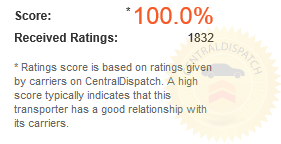Why you should always check a used car’s history before buying one
How you can check a used car’s history

Why you should always check a used car’s history before buying one
Checking a used car’s history before making a purchase is a crucial step in ensuring that you’re getting a reliable and trustworthy vehicle. The vehicle’s history provides valuable insights into its past, helping you make an informed decision.
A comprehensive vehicle history report can reveal hidden issues that may not be apparent during a visual inspection. Accidents, flood damage, odometer discrepancies, and title problems are examples of issues that might be lurking beneath the surface. Knowing about these issues in advance can save you from potential headaches and expenses.
The history report will include information about any reported accidents the car has been involved in. This insight helps you assess the extent of the damage and whether proper repairs were conducted. A car with a significant accident history may have hidden structural or mechanical problems that can compromise safety and performance.
Checking the title history is crucial for ensuring the car has a clear and valid title. A salvaged or branded title indicates that the vehicle has been significantly damaged or deemed a total loss by an insurance company. Cars with such titles may have compromised safety and resale value. Odometer rollback is a common form of fraud in the used car market. By checking the vehicle history, you can verify the accuracy of the odometer reading. This prevents you from paying more for a car with lower mileage than it has and helps you gauge the true wear and tear on the vehicle.
A detailed history report may include maintenance and service records, providing insights into how well the car has been maintained. Regular servicing indicates a well-cared-for vehicle, while a lack of service records might raise red flags about potential neglect. Vehicle history reports often include information about recalls and repairs conducted by the manufacturer. This allows you to verify whether the necessary recall repairs have been addressed. Unresolved recalls could pose safety risks and lead to future issues.
Knowing the history of a used car is crucial if you plan to sell or trade it in the future. A documented clean history enhances the vehicle’s resale value, making it a more attractive option for prospective buyers. Perhaps most importantly, checking a used car’s history provides peace of mind. Knowing that you have thoroughly researched and verified the vehicle’s background allows you to make a confident and informed decision, reducing the risk of unexpected problems and ensuring a more positive ownership experience.
Investing time and resources in checking a used car’s history is a wise and prudent step for any potential buyer. It empowers you with information that goes beyond the surface, helping you make a well-informed decision that aligns with your preferences, budget, and safety considerations. Whether you’re buying from a dealership or a private seller, obtaining a comprehensive vehicle history report is essential to the used car buying process.
How you can check a used car’s history
Checking a used car’s history is a crucial step in the buying process to ensure transparency and make an informed decision. Obtain the VIN of the used car and use it to run a vehicle history report through reputable services such as Carfax, AutoCheck, or the National Motor Vehicle Title Information System. These reports provide information on title history, accidents, odometer readings, etc.
Carfax and AutoCheck are popular services that offer detailed vehicle history reports. Simply enter the VIN on their websites, and you’ll receive comprehensive information about the car’s background, including reported accidents, title issues, and maintenance records. The National Motor Vehicle Title Information System (NMVTIS) is a government database aggregating information from various sources, including state DMVs, salvage yards, and insurance companies. It concisely reports on title history, odometer readings, and salvage or total loss records.
Some online used car marketplaces like Autotrader or Cars.com may provide basic vehicle history information for free. While not as detailed as dedicated reports, these platforms can offer initial insights into the car’s background. Visit the local Department of Motor Vehicles (DMV) or equivalent agency to request a vehicle history report. Some states provide this information to the public, and it’s an additional resource to cross-reference with other reports.
Request the seller to provide maintenance records, receipts, and any available service documentation. While not as comprehensive as a vehicle history report, these documents can offer insights into the car’s maintenance history and how well it has been cared for. Consider having a professional mechanic inspect the used car. They can identify issues not evident in the history report and provide a more thorough assessment of the vehicle’s condition.
Engage with online automotive forums or communities where users may share their experiences with specific vehicle models. This informal research can provide additional perspectives and alert you to common issues associated with the make and model you’re interested in. By combining multiple sources of information, including official vehicle history reports, maintenance records, and professional inspections, you can comprehensively understand a used car’s history. This thorough approach helps ensure that you’re making a well-informed decision and reduces the risk of unexpected issues down the road. If you buy a used car online and need it shipped to Alaska, call our Alaska Car Shippingexperts at (907) 331-3100!


